Hello and welcome,
This week we were very saddened to learn of the death of Bishop Guy Sansaricq, the first Haitian-American bishop in the United States. He was the retired Auxiliary Bishop of Brooklyn, which has the second-largest Haitian community in the United States after Miami and followed by Boston.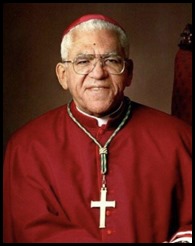
In addition to his long ministry in Brooklyn as a priest and then auxiliary bishop, Bishop Sansaricq was such an important figure in the Haitian diaspora for decades. In fact, when I started the Haitian ministry as a young priest in Washington D.C., then-Father Sansaricq was very helpful to me.
He was a good friend, and he will be sorely missed.
Last Friday, I traveled to Pittsburgh for events with my Capuchin province.
Friday, we had a meeting in preparation for our provincial chapter next year. It was very interesting to hear the different themes and ideas that the brothers would like to discuss.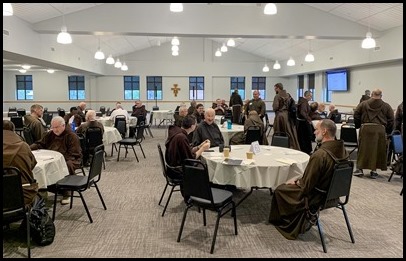
I was also pleased to hear the positive report of the provincial, particularly on the situation with vocations in our province. It was very encouraging.
Then, on Saturday, we celebrated the solemn profession of Brother Edgar Pereira.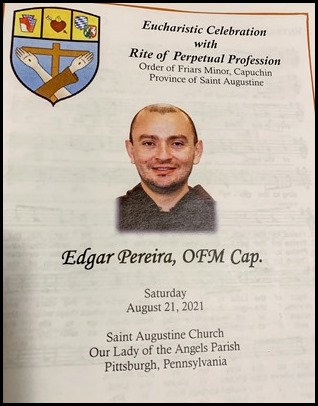
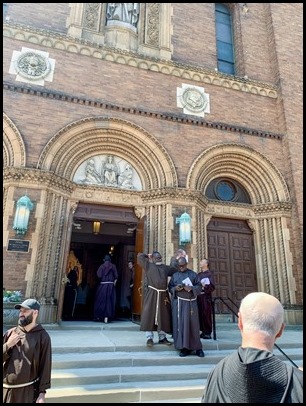
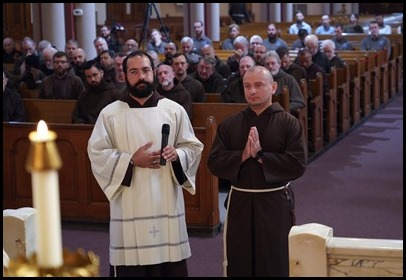
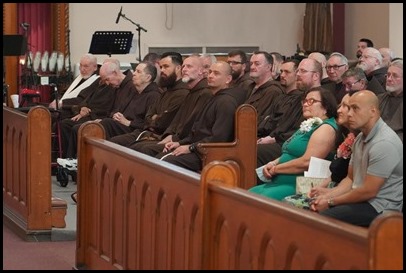
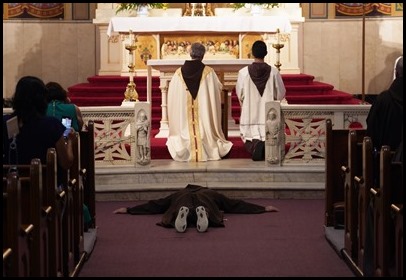
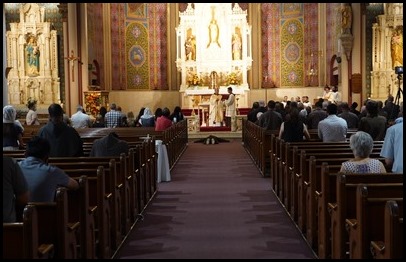
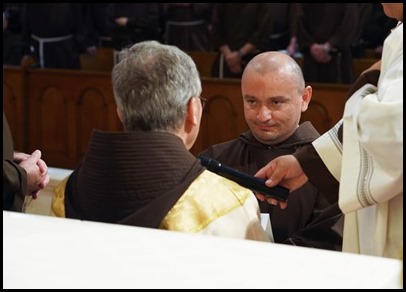
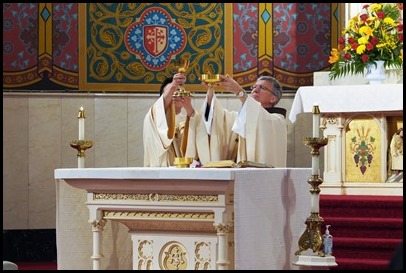 His family were parishioners of mine when they first came from El Salvador. I had also married his aunt and uncle, who were with us at the celebration, about 50 years ago. So, it was nice to make those connections again.
His family were parishioners of mine when they first came from El Salvador. I had also married his aunt and uncle, who were with us at the celebration, about 50 years ago. So, it was nice to make those connections again.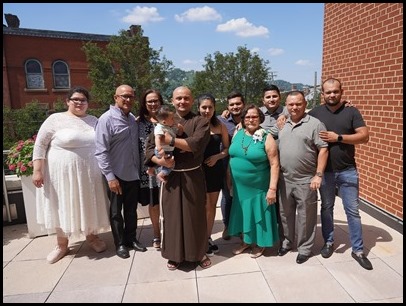
By Sunday, I was back in Boston and went to St. Leonard’s Church in the North End for a Mass marking the centennial of their celebration of the Feast of St. Lucy. Concelebrating with me were the new pastor, Father Michael Della Penna, and Father Federico, who says the Italian Mass there.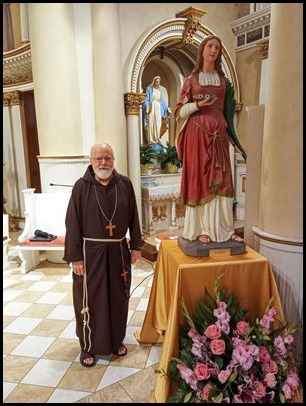
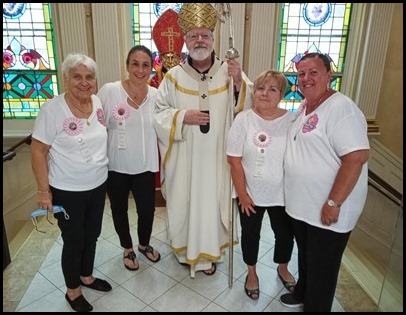
It was a beautiful celebration and, despite the threatening hurricane and storms, we had a very full church.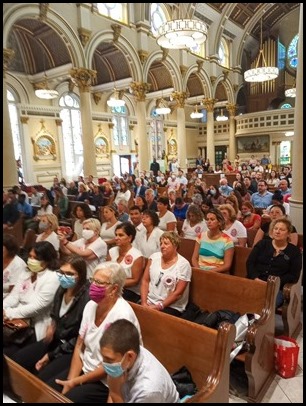
They began by singing “Santa Lucia,” which I had never heard sung in church before!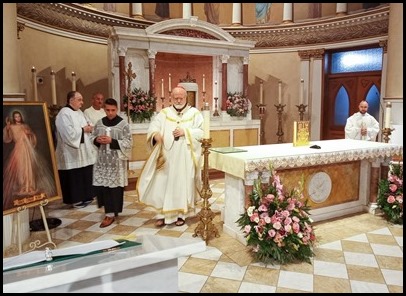
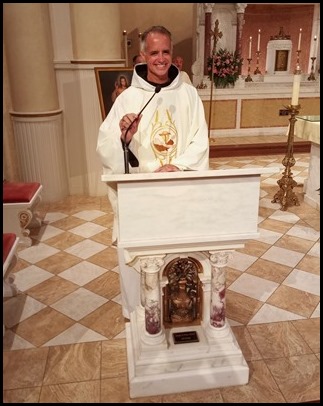
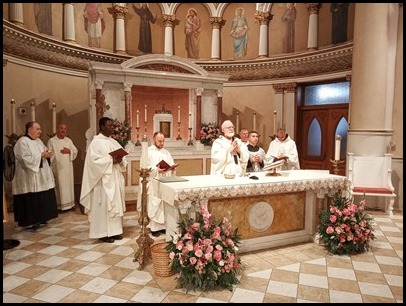
They have two societies, the Society of St. Anthony, which celebrated its centennial in 2019 and is made up of men, and the Society of St. Lucy, which is made up of women.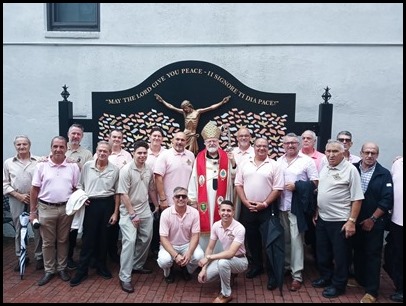
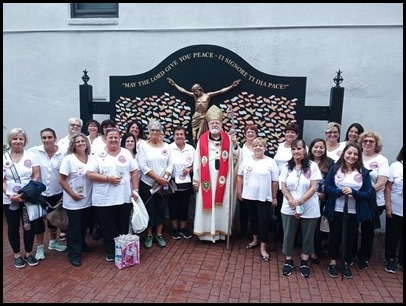
Of course, these are very important devotions in the Italian village where so many of the families of the North End are from. Those traditions of popular religiosity, which Pope Francis speaks so much about, can be a very strong influence on people’s lives and on their identity as Catholics. To me, it was very moving to see how the devotion to the saints has kept people connected to the Church and one another.
Sunday, I was invited to St. Paul’s in Cambridge to see the renovations of the church there.
The apse behind the altar was all redone and cleaned, and they restored the many different paintings in the church, which looks beautiful. 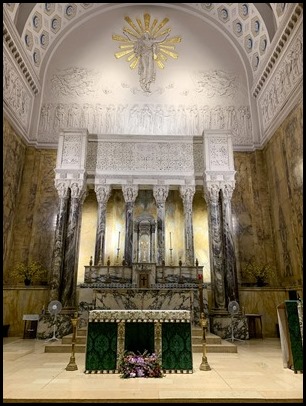
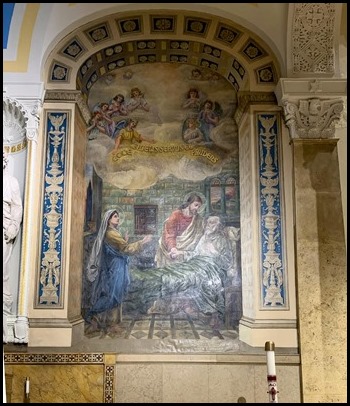
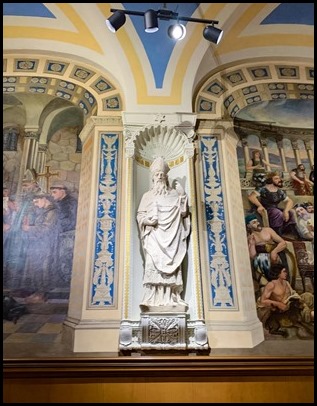
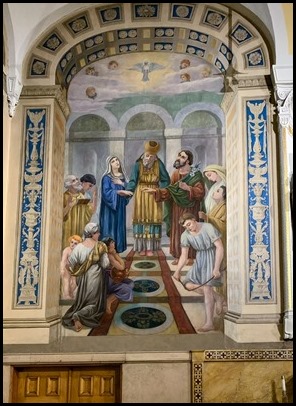
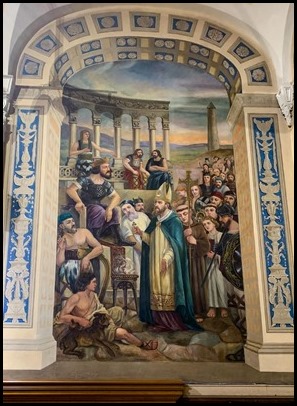
I was particularly struck by this new image of St. John Henry Newman.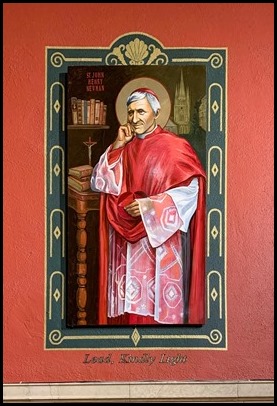
Besides the painting of Cardinal Newman, they have the text of one of his most famous poems, “The Pillar Of The Cloud,” which begins with the well-known words, “Lead, Kindly Light.”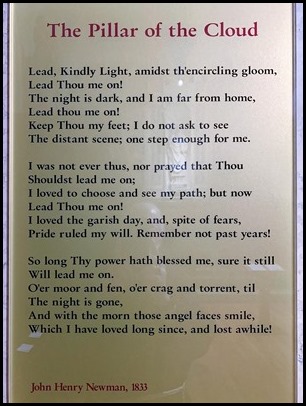
After the tour, I was treated to a nice dinner that the pastor, Father Bill Kelly, cooked for us. With us, of course, were Father George Salzmann and Father Patrick Fiorillo, who are doing wonderful work with campus ministry at Harvard.
They also shared with me the good news that St. Paul’s Choir School has been flourishing through the pandemic and that the school even held a virtual benefit concert in the spring, which I thought was a wonderful idea.
Over dinner, I mentioned that, when I was in the seminary in Pennsylvania, we had the largest German-language library in the United States, which was decorated with beer steins on top of all the bookshelves. (Those steins dated back to the days when each seminarian had their own beer stein!) Well, after that, Father Salzmann was very keen to show me his own beer stein featuring his patron saint. I was quite impressed!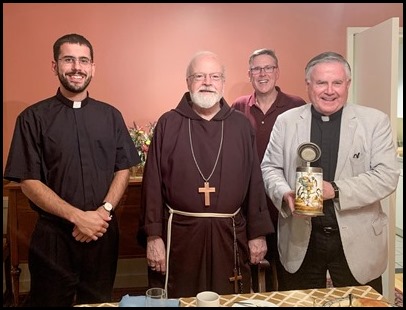
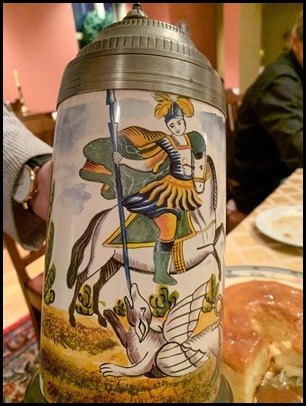
Thursday, we were visited by Brother Connor and Brother Chris, who were in town and stopped by to see the cathedral.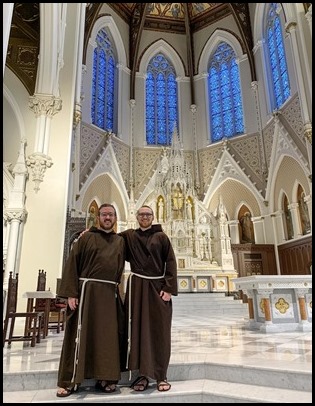
It was very good to see them, and we were happy to give them a tour.
Finally, Thursday evening, we had a celebration at the cathedral for the 80th birthday of Mary Travers. Mary worked for many years in different rectories in the archdiocese, and she was even our cook here at the cathedral, back when we had a cook. So, we thought it would be nice to honor her by celebrating her birthday here at the cathedral along with her husband, Bob, and their son, Bobby.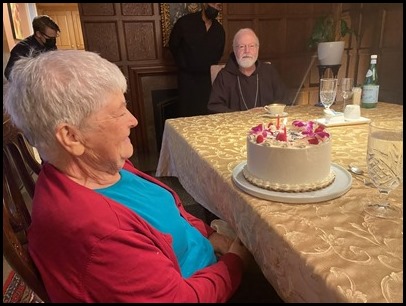
Congratulations, Mary!
Until next week,
Cardinal Seán
